The Essential First Hunting Trip Checklist for Beginner Hunters
Embarking on your first hunting trip is an exhilarating experience packed with excitement and challenges. As a beginner, you’ll discover that while hunting is thrilling, it also requires the development of skills over time. Managing expectations is important; you may not become a pro on your first outing, but this journey is the perfect opportunity to learn and grow.
Preparation is essential for a successful hunting experience. The more you prepare, the smoother your adventure will be. Remember, being over-prepared is better than being under-prepared. This guide aims to provide a straightforward first hunting trip checklist of essential gear, safety measures, and tips to help you feel confident heading into your first hunting season.
Every experienced hunter was once a beginner, so embrace the learning process and prepare for an amazing outdoor adventure!
1. How to Prepare for Your First Hunt
Get the right licenses and permits
Acquiring hunting licenses and permits is a critical step for anyone interested in hunting. These licenses ensure compliance with hunting regulations and support wildlife conservation. Fees from these licenses fund state wildlife programs, habitat restoration, and public land maintenance, making adherence to these regulations essential for hunters.
Proper documentation
The first step in obtaining the proper documentation is identifying the specific requirements for their state. Each state has its own hunting agency website, where hunters can apply for the necessary licenses and permits. Legal requirements can vary significantly, with some states mandating safety courses or imposing age restrictions.
Hunting seasons and licenses
Hunters should obtain the necessary licenses or permits and understand the specific hunting regulations, which can vary by state, species, location, and season. For instance, deer hunting, bird hunting, and wild game hunting licenses vary depending on the state and season. Most states require a separate license for each species and vary when the season begins.
Ultimately, while obtaining a license or permit might seem cumbersome, it is an essential aspect of responsible hunting. Understanding hunting requirements and regulations helps ensure sustainable wildlife populations and enhances the hunting experience.
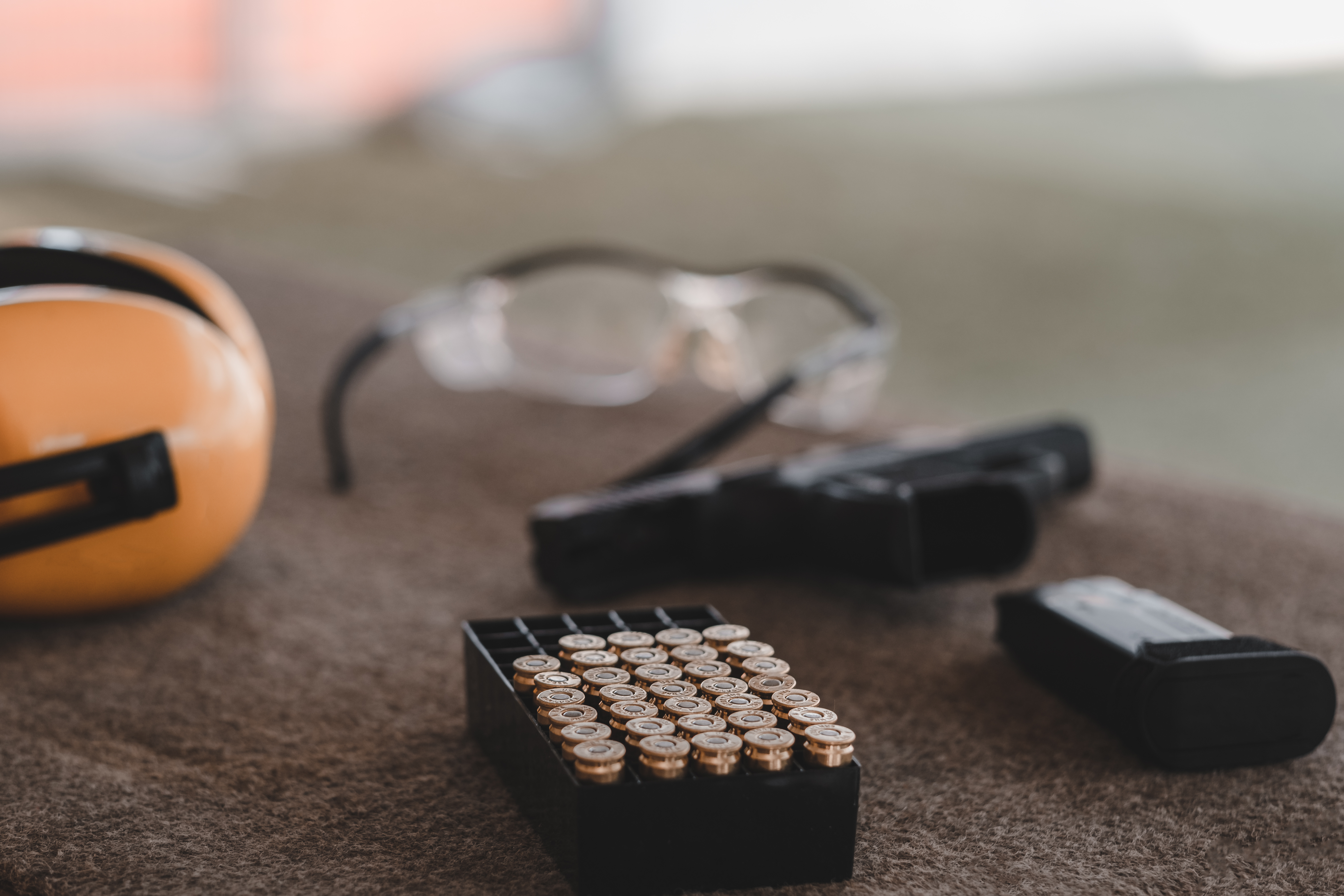
Learn hunting safety
Implementing essential safety measures is crucial for a secure experience for new hunters. Familiarize yourself with your state’s certified hunter education courses to learn the basics of hunter safety and ethical practices. Be sure to practice shooting prior to your first trip.
Firearm safety is vital: Always treat your gun as if it’s loaded, point the muzzle away from unintended targets, and keep your finger off the trigger until you’re ready to shoot. Wearing a blaze orange vest helps you stand out to other hunters, enhancing your safety.
Be vigilant about potential hazards in your environment. Always carry a first aid kit, pack dry clothes, and check the weather in advance. Furthermore, inform loved ones of your plans – where you’re going, when you expect to return, and your itinerary – to ensure someone knows your whereabouts.
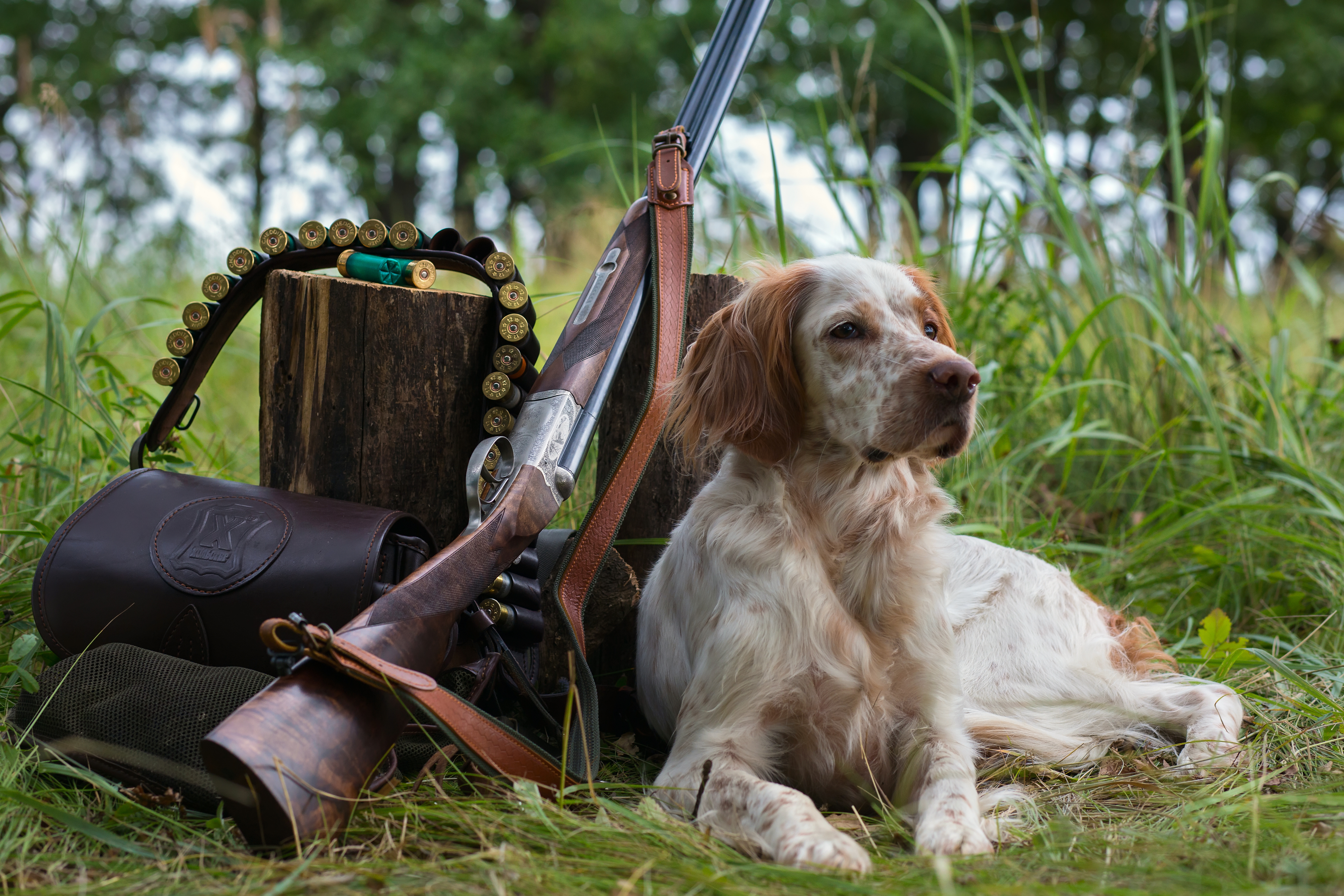
Research your hunting destination
Researching your hunting location is essential for ensuring a successful trip. A well-planned adventure increases your chances of success and enhances your overall experience. Several factors to consider when preparing for your hunting trip, including terrain, animal behavior, local laws, and seasonal variations.
Local laws
When planning your hunting trip, it’s important to gather information about your destination. Familiarize yourself with the regulation requirements specific to the area, understand how long your trip will be, and check the accessibility of the land.
The availability of public land for hunting often varies from state to state. Therefore, it’s important to investigate the specific regulations and opportunities that exist in your chosen location. Researching the harvest rates for the animal you are targeting can also provide valuable insights and assist you in setting realistic expectations for your trip.
Animal behavior
Understanding animal behavior is crucial. Upland birds, big game, and whitetail deer all have unique behaviors and active seasons. In some states, hunting may not be allowed during breeding seasons. Always check with the state to know when you can legally hunt.
Seasonal variations
Timing your hunt according to seasonal patterns will further aid in maximizing your success. For instance, rifle seasons, archery seasons, and turkey hunting seasons may vary depending on the location.
Terrain
Understanding the terrain features is another critical component of preparation. Different landscapes can present varying degrees of difficulty, especially for beginners who may not be accustomed to specific environments. For instance, mountainous terrain can pose challenges that may not be suitable for novice hunters. Check out terrain maps like Google Earth prior to your trip to familiarize yourself.
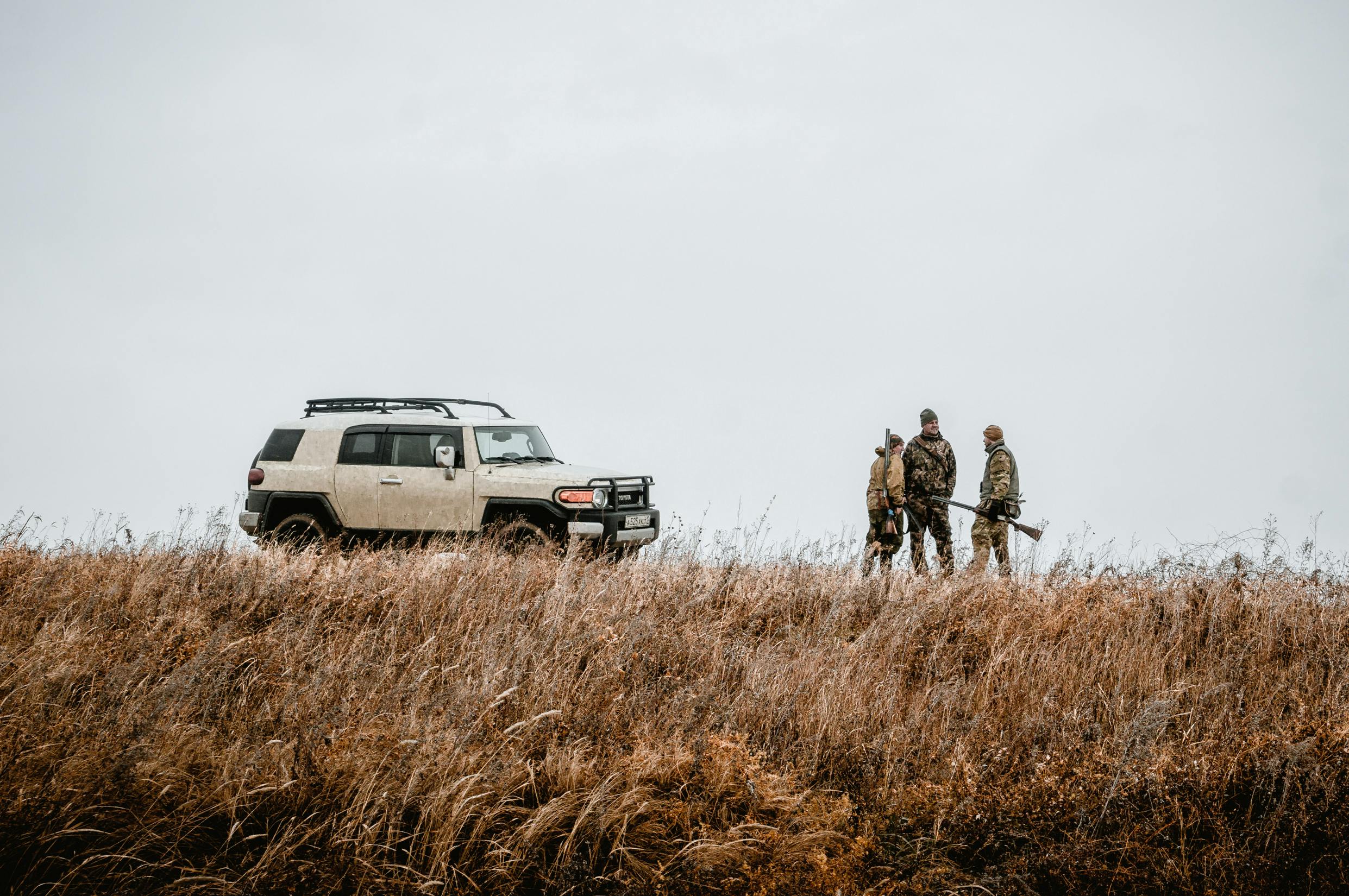
Pack the right gear
Essential hunting gear for your first trip includes clothing, tools, and accessories that cater to your specific environment and hunting style. As a new adult hunter, it’s important to understand what constitutes essential hunting gear and packing strategies for your trip.
Clothing
When it comes to clothing, the key is layers. Start with a moisture-wicking base layer made from merino wool or synthetic polyester to keep you dry. The insulating layer should be made of the same materials, which is crucial for regulating your body’s warmth.
our outer shell, including a hunting jacket and pants (like blue jeans), depends on your hunting activities; for some states, blaze orange clothing is a requirement. Camouflage clothing for the type of species you intend to hunt. Ensure that your outerwear is both water and wind-resistant and remember that clothes should fit loosely for optimal comfort and movement.
Footwear
Footwear is another critical aspect; a good pair of hunting boots will be your best friend when facing cool weather and covering long distances. Pair those with thick wool socks for added warmth. Accessories like gloves, hats, and face masks are essential for colder months, helping you stay comfortable during your outings.
Tools
Your choices in terms of tools will depend on personal preferences and state regulations. Firearm users may opt for a shotgun or rifle hunt, while those hunting deer often find tree stands helpful for better visibility. If you choose to use a tree stand, always make sure to wear a safety bino harness. A quality hunting knife, whether you prefer a fixed or folding blade, is indispensable for field dressing.
Essential items
Other essential items include lamps (a headlamp is a great option), extra batteries, a compass, and a map. Be sure to pack items like toilet paper, wet wipes, trekking poles, a first aid kit, animal calls, scent elimination products, cow calls (for elk hunting/chasing elk), decoys, binoculars, game bags, and plastic bags for storage.
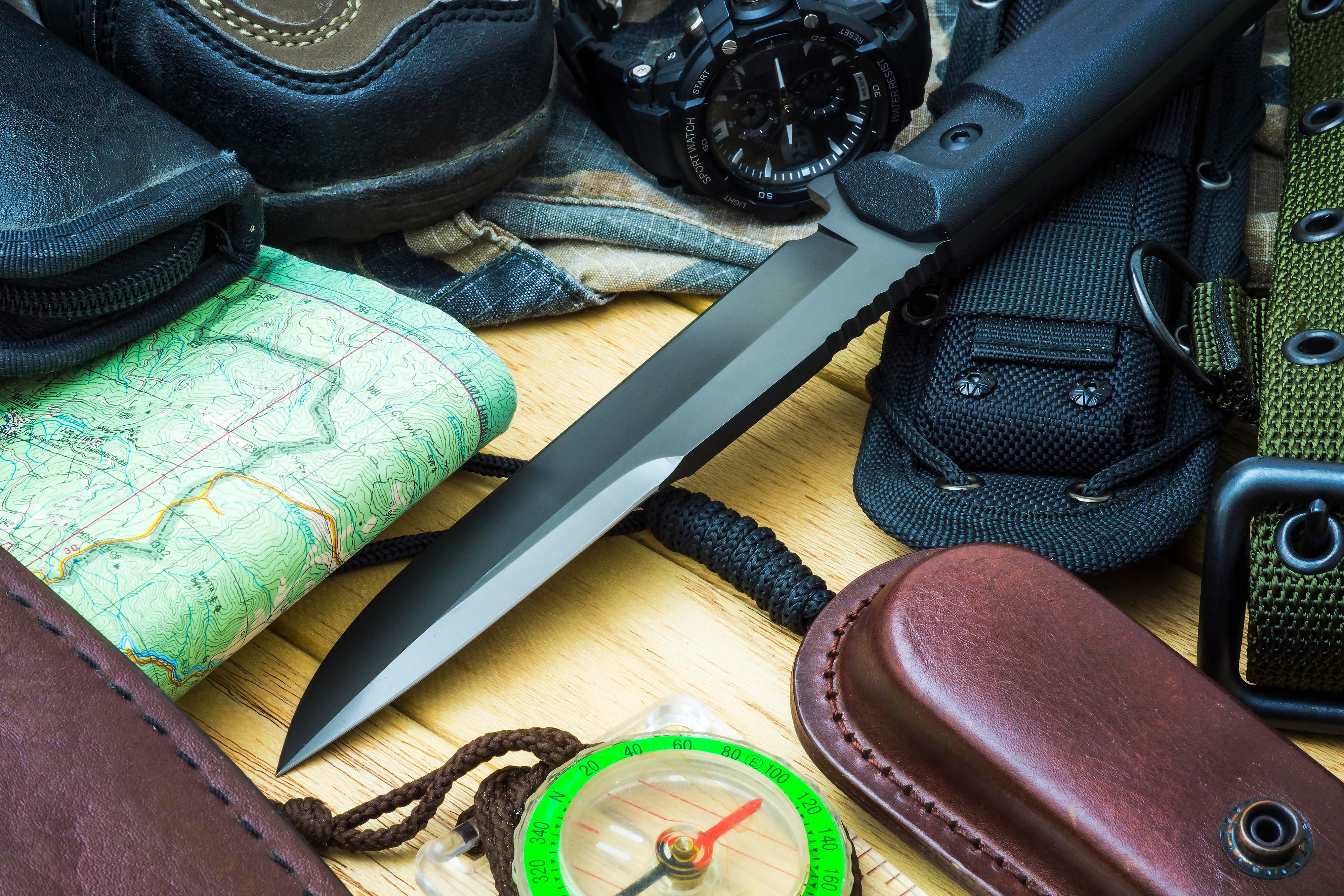
Plan your meals and snacks
Proper nutrition is crucial during your hunting trip, as it directly impacts your energy levels, focus, and overall performance. While you might prioritize essential hunting gear, don’t overlook the importance of packing on-the-go food. Hunting is a physically demanding sport, and having the right nutrients on hand will help you maintain your stamina and stay alert.
Breakfast
Early risers who embark on day hunts often skip breakfast, but it’s essential to have nutrient-dense options to fuel your body.
Instant oatmeal with dried fruits and nuts is an excellent choice, providing energy through its rich protein and healthy fats.
Another filling breakfast option is a pre-made breakfast burrito, which includes scrambled eggs, beans, cheese, and your choice of meat.
Lunch
For lunch, consider packing protein bars and small snacks, but aim for nutrient-dense options like chicken pouches, hard cheese, jerky, or freeze-dried meals. These foods provide the necessary energy and are convenient for on-the-go snacking.
Additionally, always carry enough water to stay hydrated, as staying hydrated is just as important as making good food choices.
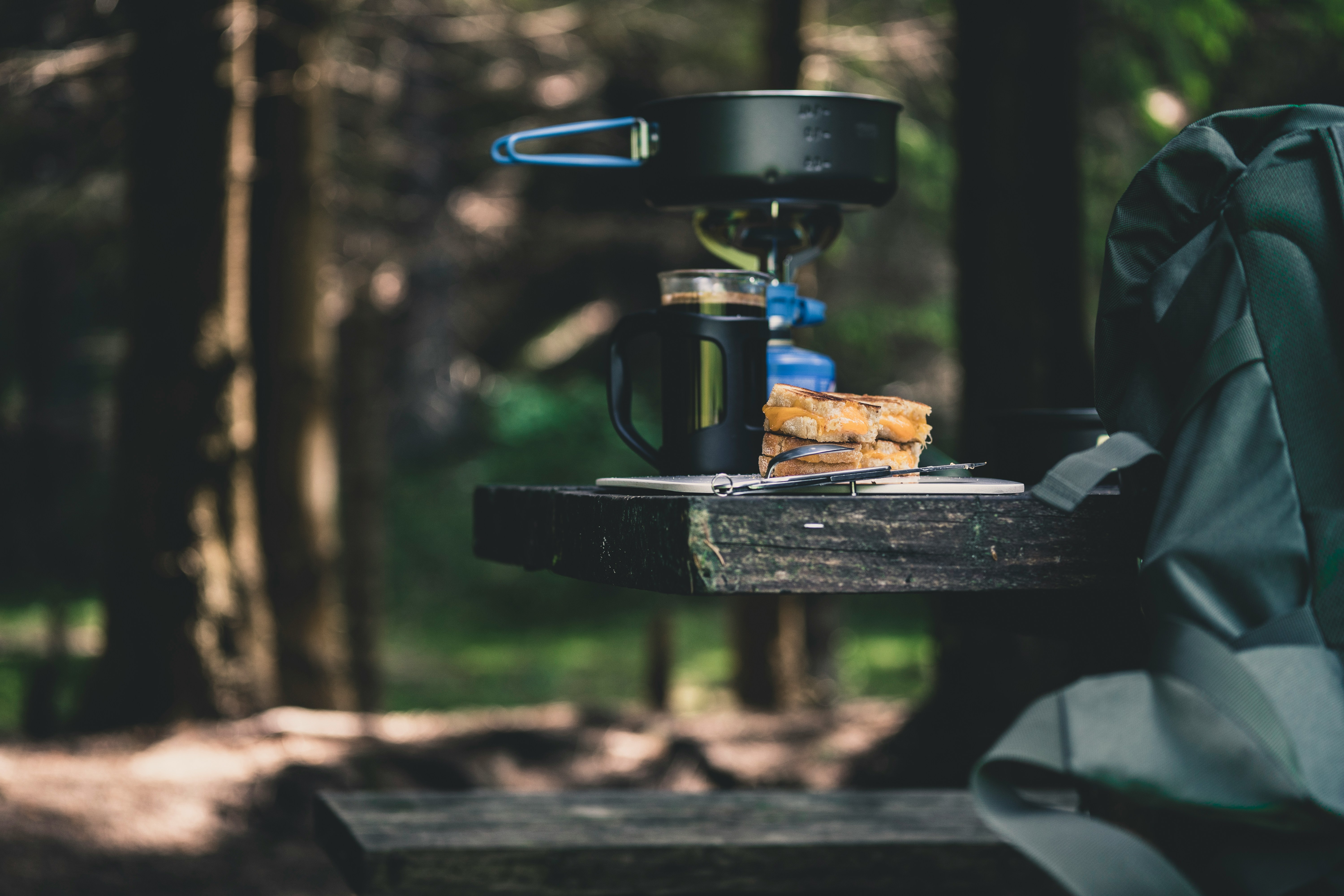
2. Beginner Tips for Success in the Field
When starting out in hunting, it’s essential to embrace a few practical tips that can enhance your experience. Hunts require patience. This is a skill that develops over time and is vital for any beginner. Learning to stay quiet is equally important. Wildlife is incredibly sensitive to noise and movement, so mastering the ability to move slowly and minimize sound will significantly improve your chances of success.
Challenges are inevitable when you’re in the field. It’s important to be prepared for various situations and to recognize common mistakes that beginners often make. Having a clear understanding of beginner hunting errors to avoid can help you navigate these challenges more effectively. Remember that hunting is as much about learning as it is about the act itself.
In addition to patience and stealth, being aware of your surroundings is fundamental. This awareness can help you better understand the habitat and behaviors of the animals you’re seeking. Consider finding a mentor, or hunting partners, who can guide you through this learning process and teach you how to track animals effectively.
Sources
https://www.saltplainsoutfitters.com/our-blog/first-time-hunters-guide-what-to-expect-and-how-to-prepare
https://www.hunter-ed.com/blog/hunting-basics-get-license/
https://www.safety.af.mil/Divisions/Occupational-Safety-Division/Fall-Safety/Hunting-Safety/
https://www.tidewe.com/blogs/hunting-tips/how-to-plan-your-out-of-state-hunting-trip?srsltid=AfmBOorStZwjbEU2ITu7pDUDC9ygPaES29f6RSI36_p_6sXLf9DjBKkK
https://www.zerotohunt.com/hunting-equipment-recommendations/
https://backpackerspantry.com/blogs/news/10-of-the-best-foods-to-pack-for-your-next-hunting-trip?srsltid=AfmBOopvZgULflBj_hz-jsDMrVKTF51_452o_2ftQBkeakemjZZ5XsaN
https://www.trackeroffroad.com/articles/hunting-strategy.html
